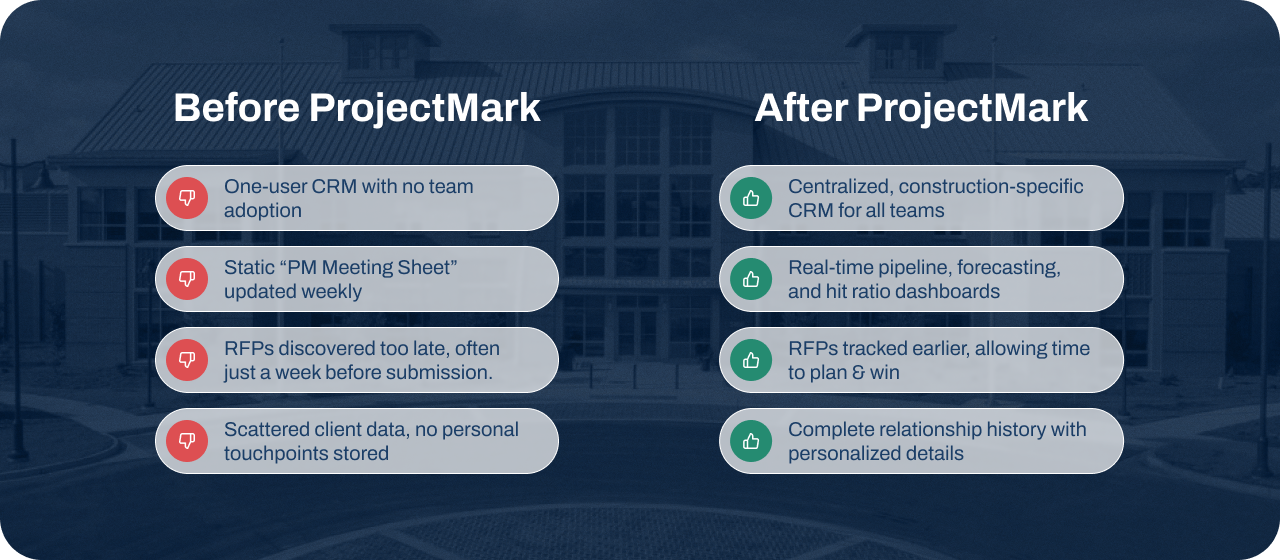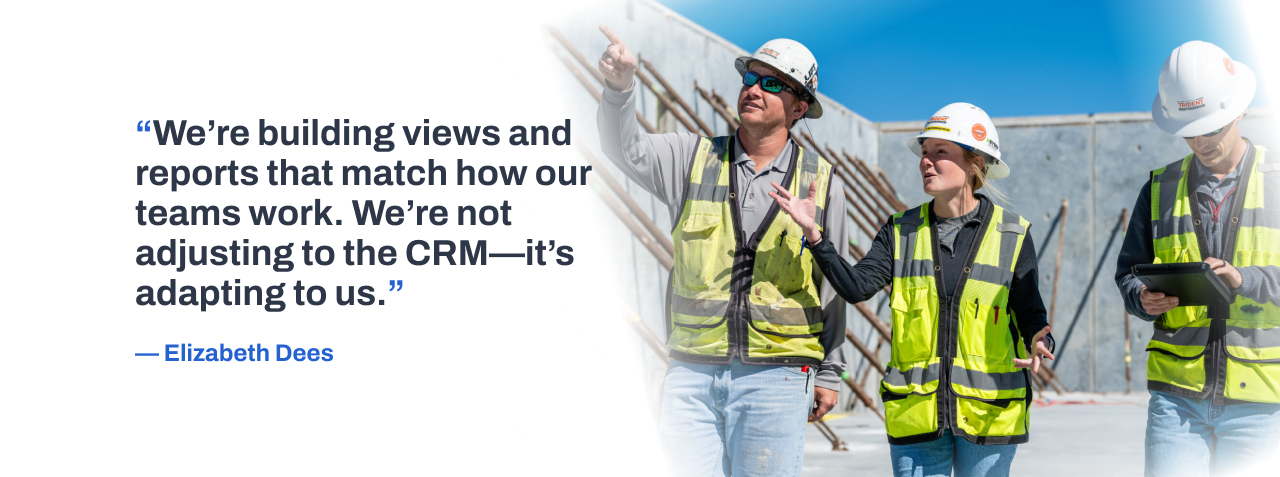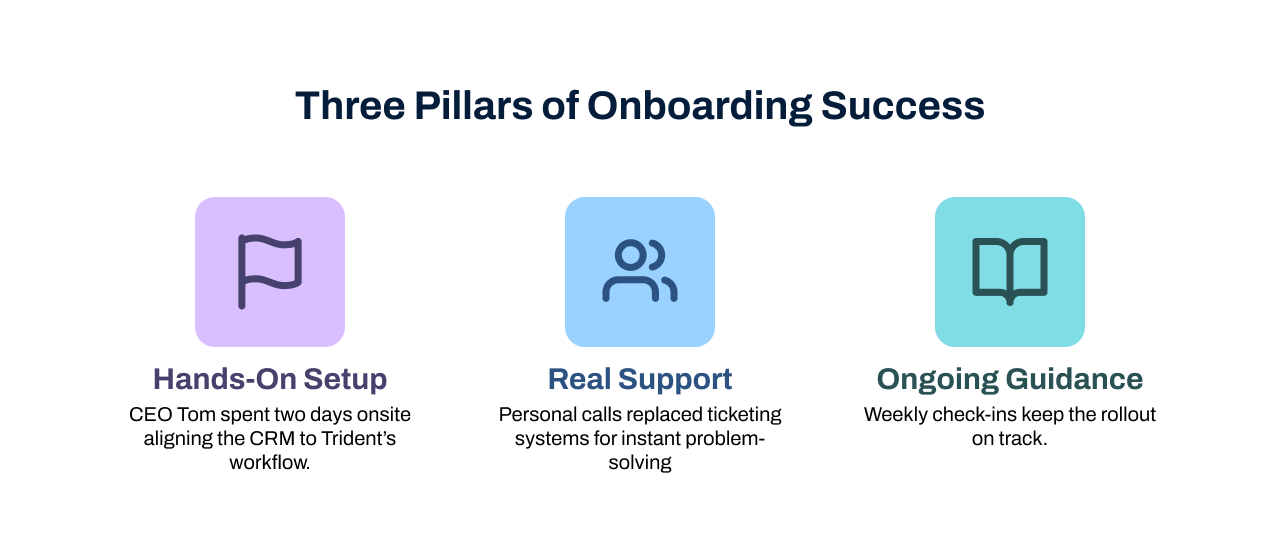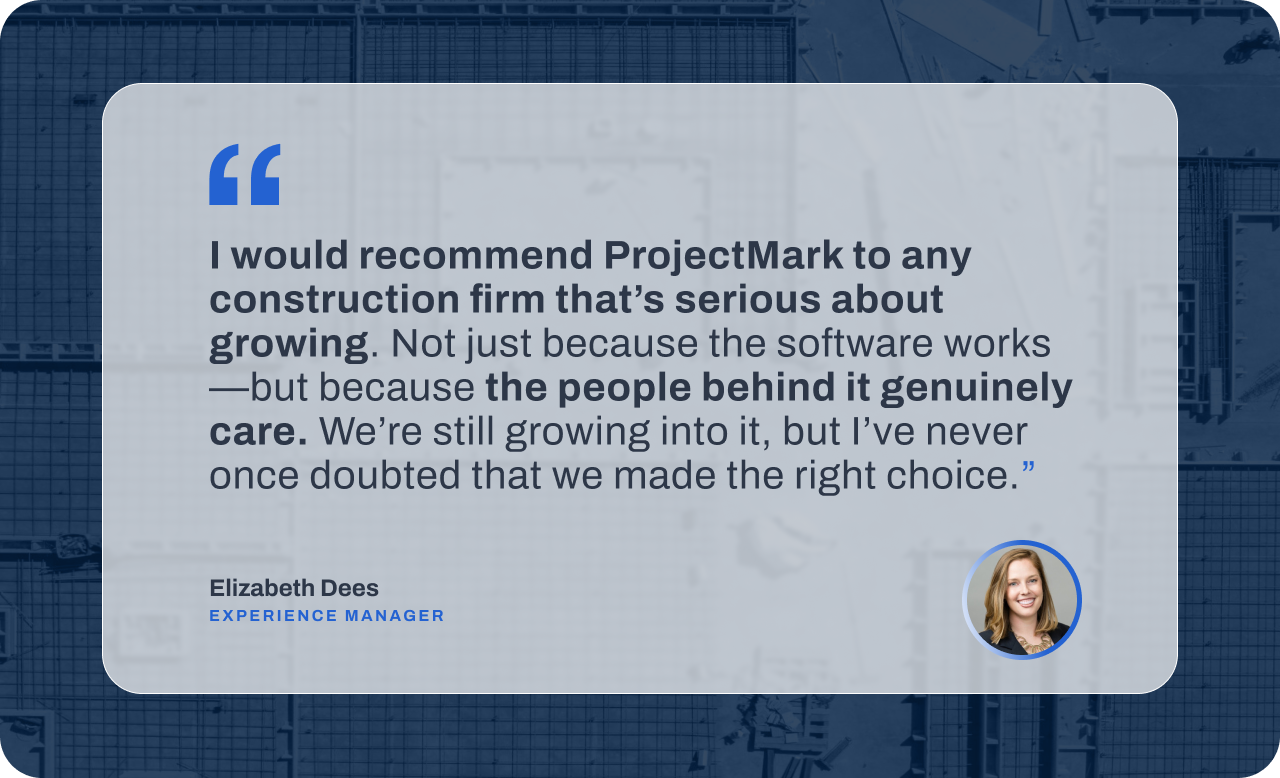SMPS Webinar
Beyond AI: The People-First Strategy Your AEC Firm Needs to Win Work Smarter
ZOOM
Apr 25, 2024
10:30 AM (PT)
Register Now
Founded in 1981, Trident Construction has built a reputation for quality, community focus, and collaboration in Charleston, South Carolina. The company, rooted in strong relationships and a “Team Build” culture, is preparing to celebrate its 45th anniversary—a milestone that reflects its long-standing commitment to excellence in commercial construction. With over 120 employees and projects spanning hospitality, healthcare, industrial, and more, Trident plays a vital role in shaping South Carolina’s built environment.
But as the business expanded, Trident realized its internal processes weren’t scaling with its growth. Information was scattered. Client data lived in different places—or not at all. Reporting was inconsistent. Teams weren’t always aligned. The systems they used no longer reflected the sophistication of the work they were delivering. That’s when they turned to ProjectMark.

Before ProjectMark, Trident’s CRM activity was limited to one user who managed opportunities in Pipedrive. No one else used it, and as Elizabeth Dees, Experience Manager, described it, “He’d literally have to print out the main view from the CRM, bring it to meetings, and that was it.”
Beyond that, the company used a spreadsheet known as the “PM Meeting Sheet”. Updated weekly and passed around during Monday morning meetings, this sheet became the unofficial system of record for project updates, bid opportunities, and team assignments. But it wasn’t cloud-based, was only editable by one person, and lacked any kind of dynamic reporting or filtering.
“We didn’t even realize we were behind,” Elizabeth said. “It’s just how we always did it—until we started asking better questions.”
“We didn’t even realize we were behind. It’s just how we always did it—until we started asking better questions.”
— Elizabeth Dees, Experience Manager.

Elizabeth’s position was created with the future in mind. Her role wasn’t just about marketing—it was about improving the overall experience for Trident’s clients, employees, and partners. That required visibility into every step of a pursuit, from the first conversation to project delivery.
When Elizabeth took on the challenge, she immediately recognized the need for a new CRM. But she didn’t jump in blindly. Instead, she led a structured RFP process that began with five vendors and ended in a head-to-head decision. She spoke with peers at other construction firms, checked references, ran demos, and graded responses.
One of her benchmarks? Personalization. “We needed a system that didn’t just track names and numbers—we needed something that could help us remember client birthdays, spouses’ names, their favorite way to receive updates,” she said. “That’s how we build relationships here. And we had nowhere to store that.”
“We needed something that could help us remember client birthdays, spouses’ names, their favorite way to receive updates. That’s how we build relationships here.”

From the beginning, ProjectMark stood out—not just for its construction-specific features, but for the way it engaged with Trident’s team.
Elizabeth noted that they’d even tried Salesforce before ProjectMark, but found it overly complex, hard to customize, and nearly impossible to implement without full-time admin support.
“I spent eight months trying to make Salesforce work. After one call with ProjectMark, I knew we’d found our answer.”
Trident’s team needed the system up and running fast—before the end of the year. ProjectMark delivered. Tom, ProjectMark’s CEO and co-founder, flew in and spent two full days with Trident, guiding them through onboarding and ensuring the implementation aligned with their internal goals.
“We didn’t just get a login and a training deck. Tom sat with us, understood our workflow, and made the transition feel doable,” Elizabeth said. “When I hit a snag while uploading a spreadsheet, I didn’t get a support ticket—I got a phone call with a real person.”
Since launch, weekly support calls, hands-on troubleshooting, and proactive check-ins have kept Trident’s rollout on track.
“When I hit a snag while uploading a spreadsheet, I didn’t get a support ticket—I got a phone call with a real person."

The impact was immediate:
“We used to find out about an RFP a week before it was due. Now we see it coming and have time to plan.”
Trident’s internal team meetings revolve around two views: “Active Construction” and “Budgeting & Design.” ProjectMark allowed the company to replicate those exact views in the CRM—complete with tags, filters, and field customizations.
“This isn’t a platform we’re learning to use,” Elizabeth said. “It’s one we’re shaping to match how we already work.”
Even requests as specific as colored tags, font sizes for projectors, and column width adjustments have been addressed through the ProjectMark team’s product roadmap and direct collaboration.
"This isn’t a platform we’re learning to use. It’s one we’re shaping to match how we already work."
Trident is past the initial rollout and now focused on expanding how ProjectMark supports communication and analytics across more departments. The early results have been strong—and momentum is building.
“Once our project marketing database is cleaned up and uploaded, it’s going to be a game-changer,” Elizabeth said. “I already know it’s going to save us dozens of hours a month.”
Elizabeth’s Final Word

Want to learn more about how ProjectMark helps firms like Trident win more work and manage opportunities better? Book a demo today.
See for yourself how our modern CRM is revolutionizing the construction industry.
Watch Video

